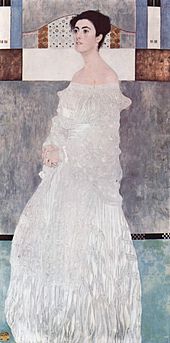
Erasmus. Wikimedia commons
The Praise of Folly
Erasmus of Rotterdam (1466 - 1536) has written a book called «The Praise of Folly». By turning around the relative roles of reason and folly, in a satirical way, he manages to make a number of excellent points which I wish to share with you. In the text it is Folly who speaks directly, and that is how the phrases are turned. The points in the text are chosen and presented here in the order I have noted them when reading the manuscript. As my readings proceed, the number of points will expand.
1) It is sufficient that I show up, and joy spreads among gods and humans.
2) You are right to give compliments to yourself if nobody else does.
3) Everybody cultivates me or profits from my good actions, but nobody compliments me.
4) There is no room for cosmetics on me, I am not simulating on my face what I do not feel in my heart.
5) What lack of gratitude among those people, by Herkules, who are my greatest fans, but who are so ashamed of my name in public that they throw it in the face of others like a great insult.
6) If I use complicated words, those who understand them are even more satisfied with themselves and those who do not understand them are more impressed the less they understand them.
7) I am son of Plutus (god of riches). One sign from him alone, yesterday as today, shakes up the sacred and the unsacred, puts everything upside down.
8) To him who rouses Plutus’ anger, not even Pallas (wisdom) will be of help; however, he who has his favor can send packing Jupiter and his lightning.
9) I have been nourished by the breasts of two gracious nymphs, Drunkenness and Ignorance. My friends and followers are Self-Esteem, Flattery, Forgetfulness, Lazyness, Voluptuousness, Dementia, Softness, Feast and Deepsleep. Thanks to the loyalty of these helpers, I ensure my authority on all things and emperors are held under my empire.
10) What would life be if one took away pleasure (which comes from me). (Sophocles: Where there is unconsciousness life is sweeter.)
11) The whimsical old talker escapes from the miserable worries that torture the wise. He does not feel the misery of life that a more robust age hardly can bear.
12) As wisdom, according to the definition of the Stoïcs, consists of taking reason as a guide, and folly, on the contrary to let oneself float along with passions, Jupiter has, in order not to make men’s life sad and morbid, given them more passion than reason.
1) It is sufficient that I show up, and joy spreads among gods and humans.
2) You are right to give compliments to yourself if nobody else does.
3) Everybody cultivates me or profits from my good actions, but nobody compliments me.
4) There is no room for cosmetics on me, I am not simulating on my face what I do not feel in my heart.
5) What lack of gratitude among those people, by Herkules, who are my greatest fans, but who are so ashamed of my name in public that they throw it in the face of others like a great insult.
6) If I use complicated words, those who understand them are even more satisfied with themselves and those who do not understand them are more impressed the less they understand them.
7) I am son of Plutus (god of riches). One sign from him alone, yesterday as today, shakes up the sacred and the unsacred, puts everything upside down.
8) To him who rouses Plutus’ anger, not even Pallas (wisdom) will be of help; however, he who has his favor can send packing Jupiter and his lightning.
9) I have been nourished by the breasts of two gracious nymphs, Drunkenness and Ignorance. My friends and followers are Self-Esteem, Flattery, Forgetfulness, Lazyness, Voluptuousness, Dementia, Softness, Feast and Deepsleep. Thanks to the loyalty of these helpers, I ensure my authority on all things and emperors are held under my empire.
10) What would life be if one took away pleasure (which comes from me). (Sophocles: Where there is unconsciousness life is sweeter.)
11) The whimsical old talker escapes from the miserable worries that torture the wise. He does not feel the misery of life that a more robust age hardly can bear.
12) As wisdom, according to the definition of the Stoïcs, consists of taking reason as a guide, and folly, on the contrary to let oneself float along with passions, Jupiter has, in order not to make men’s life sad and morbid, given them more passion than reason.

G. Klimt. Wikimedia Commons
13)Can you love someone if you hate yourself? Be in harmony with others, if you are not in agreement with yourself? Give someone else pleasure if you feel boring and painful yourself? If I were chased away, far from being able to stand others, everyone would be disgusted with themselves.
14)There are no great actions that I have not inspired, no noble arts that have been invented without my authority.
15)The domain and the source of all actions that are sung about, are they not war? Those who fall, don’t count. What is needed are big and fat men, equipped with the greatest amount of audacity and a minimum of intelligence, that of a soldier and not a philosopher.
16)What condemned Socrates to drink poison, if it was not wisdom?
17)What will those poor people (the wise) do in a conflict which is handled by sword, they who die from fear even when they have to fight with mere words?
18)If the men who have given themselves to the study of wisdom are generally unhappy, especially with their descendants, I think it is because nature, in its foresight, sees to it that the propagation of wisdom is not carried too far among mortals.
19)Invite a wise man to a good meal, and he will trouble it by his deadly silence or misplaced questions.
20)If somebody wants to oppose all others, I would advise him to do as Timon, to go into the desert to enjoy his wisdom in solitude.
21)What speech of a wise man would have the same effect as the story told by Sertorius on how to tear the tail of a horse off, or those fabulous tales of Minos and Numa. It is by stupidities like this that one governs this enormous and powerful beast that is the people.
22)The vain glory, this charming siren.
23)Is there more mad than the lowness of a candidate who flatters the people, buys its favor with gifts, goes hunting for applause from the mad, likes to be acclaimed, makes himself carry in triumph, like an idol who is shown to the people?
24)This folly that creates the cities, it is by her that are held together empires, public functions, religion, boards, tribunals; human life is nothing but a game of folly.
25)The merits of common sense? If common sense rests on experience, does it belong to the wise who by modesty or timidity initiates nothing or to the mad who ignores modesty (since he has none) and danger and stops at nothing?
26)There are, in effect, two major obstacles that prevent from arriving at the knowledge of things: hesitation, which spread a smokescreen on the mind, and fear, which at the sight of danger stops you from acting. But folly frees you marvelously. Few mortals understand the numerous advantages that are connected with being without hesitation and daring everything.
27)Is the life of mortals anything else than a theatre play where everyone moves forward with a mask and plays his role until the chorus invites him to go off the stage?
28)Nobody can accede to this famous wisdom, fortress – it is said – of happiness, without Folly as his guide.
29)All passions derive from Folly. The mad is distinguished from the wise by this sign that one is guided by passion and the other by reason. Correspondingly, the Stoics remove from the wise all passions, like so many illnesses.
30)Who would want to live in Plato’s republic, in the region of Ideas, where feelings and passions have no place?
31)The wise bathes his spirit in human misery. But I, with the help of ignorance, distraction, forgetfulness, and sometimes the hope of happiness or by pouring some honey on daily events, am coming so well to the assistance of their misery that they suffer from the idea of leaving their life.
32)Is it not better to lead a life of honey thanks to Folly than to look for, like it is said, the rope to hang yourself?
33)What harm will the scorn of all the people around you do, as long as you applaud yourself? Yet, only Folly makes this possible.
34)There is nothing unfortunate about staying in conformity with one’s nature, unless by chance one finds that man should rather be able to fly like a bird. In that case, one would also consider it unfortunate if a magnificent horse had not learnt to master grammar. So, in the same way that a horse who ignores grammar is not miserable, a mad man is not unhappy, because madness is in his nature.
35)In the animal world, the most happy species are those who ignore completely all science and recognize no other master than nature. What is more happy or marvelous than bees? What philosopher has ever founded a republic like that?
14)There are no great actions that I have not inspired, no noble arts that have been invented without my authority.
15)The domain and the source of all actions that are sung about, are they not war? Those who fall, don’t count. What is needed are big and fat men, equipped with the greatest amount of audacity and a minimum of intelligence, that of a soldier and not a philosopher.
16)What condemned Socrates to drink poison, if it was not wisdom?
17)What will those poor people (the wise) do in a conflict which is handled by sword, they who die from fear even when they have to fight with mere words?
18)If the men who have given themselves to the study of wisdom are generally unhappy, especially with their descendants, I think it is because nature, in its foresight, sees to it that the propagation of wisdom is not carried too far among mortals.
19)Invite a wise man to a good meal, and he will trouble it by his deadly silence or misplaced questions.
20)If somebody wants to oppose all others, I would advise him to do as Timon, to go into the desert to enjoy his wisdom in solitude.
21)What speech of a wise man would have the same effect as the story told by Sertorius on how to tear the tail of a horse off, or those fabulous tales of Minos and Numa. It is by stupidities like this that one governs this enormous and powerful beast that is the people.
22)The vain glory, this charming siren.
23)Is there more mad than the lowness of a candidate who flatters the people, buys its favor with gifts, goes hunting for applause from the mad, likes to be acclaimed, makes himself carry in triumph, like an idol who is shown to the people?
24)This folly that creates the cities, it is by her that are held together empires, public functions, religion, boards, tribunals; human life is nothing but a game of folly.
25)The merits of common sense? If common sense rests on experience, does it belong to the wise who by modesty or timidity initiates nothing or to the mad who ignores modesty (since he has none) and danger and stops at nothing?
26)There are, in effect, two major obstacles that prevent from arriving at the knowledge of things: hesitation, which spread a smokescreen on the mind, and fear, which at the sight of danger stops you from acting. But folly frees you marvelously. Few mortals understand the numerous advantages that are connected with being without hesitation and daring everything.
27)Is the life of mortals anything else than a theatre play where everyone moves forward with a mask and plays his role until the chorus invites him to go off the stage?
28)Nobody can accede to this famous wisdom, fortress – it is said – of happiness, without Folly as his guide.
29)All passions derive from Folly. The mad is distinguished from the wise by this sign that one is guided by passion and the other by reason. Correspondingly, the Stoics remove from the wise all passions, like so many illnesses.
30)Who would want to live in Plato’s republic, in the region of Ideas, where feelings and passions have no place?
31)The wise bathes his spirit in human misery. But I, with the help of ignorance, distraction, forgetfulness, and sometimes the hope of happiness or by pouring some honey on daily events, am coming so well to the assistance of their misery that they suffer from the idea of leaving their life.
32)Is it not better to lead a life of honey thanks to Folly than to look for, like it is said, the rope to hang yourself?
33)What harm will the scorn of all the people around you do, as long as you applaud yourself? Yet, only Folly makes this possible.
34)There is nothing unfortunate about staying in conformity with one’s nature, unless by chance one finds that man should rather be able to fly like a bird. In that case, one would also consider it unfortunate if a magnificent horse had not learnt to master grammar. So, in the same way that a horse who ignores grammar is not miserable, a mad man is not unhappy, because madness is in his nature.
35)In the animal world, the most happy species are those who ignore completely all science and recognize no other master than nature. What is more happy or marvelous than bees? What philosopher has ever founded a republic like that?

Fredosor.com
36)Among the mortals who are the most removed from happiness are those who apply themselves to wisdom, twice mad by, forgetting that they are born human, they forget their condition and they aspire to the life of immortal gods.
37)With me as a guide you will ignore the fear of death, the problems of bad conscience, shame, fear, ambition, envy, love and all the other problems that torment men. Everybody will love your company, even the animals, who by instinct will know that you mean no harm.
38)Even if Alchibiades was of the opinion that truth comes from children and wine, I contend that it comes primarily from me. What is in the heart of the simple minded, shows on his face and comes out of his mouth.
39)The wise talk with two tongues; with one the truth, with the other that which serves his cause.
40)He will have lost the best years of his life in worries, perpetual sweating, poor, sad, dark, severe and hard on himself, painful and repulsive for the others, assaulted by paleness, skinniness, illness, bad sight, aged and whitened before time, fleeing from life before time. In fact, no matter when he dies he who has not lived. There you have the beautiful portrait of the wise.
41)One must distinguish between the furious madness that creates conflicts and the tender madness – coming from me – which is the most desirable of things. This latter comes every time a sweet illusion frees the soul from anguishing worries and plunges it into an ocean of delight.
42)You are happier the wider your register of madness is, as long as you stay in the way that is mine.
43)Those who believe that man’s happiness resides in realities have really lost their mind. The obscurity and the diversity of human matters are such that you can know nothing clearly. Or, if you achieve knowledge of something it is often at the expense of the joy of life.
44)The condition of the mad is preferable. Firstly because their happiness comes at a low cost, just a little self-persuasion; then because they are a large number who rejoice together.
45)Since among the many merits of Bacchus the first is to chase the worries of the soul, even if it is for a short time, my good deeds are more complete, more durable; I who fill the soul with perpetual high spirits, joys, delights, carrying you away, at no cost.
46)I consider that I am being honored in a very religious way when everywhere men are giving me their hearts, following my habits, leading a life in my image. This way of cultivating a saint is hardly done among Christians.
47)Thanks to my good work, the animal by far the most unhappy (the scholar) rises to such levels of bliss that he would not change his fate even with the King of Persia.
37)With me as a guide you will ignore the fear of death, the problems of bad conscience, shame, fear, ambition, envy, love and all the other problems that torment men. Everybody will love your company, even the animals, who by instinct will know that you mean no harm.
38)Even if Alchibiades was of the opinion that truth comes from children and wine, I contend that it comes primarily from me. What is in the heart of the simple minded, shows on his face and comes out of his mouth.
39)The wise talk with two tongues; with one the truth, with the other that which serves his cause.
40)He will have lost the best years of his life in worries, perpetual sweating, poor, sad, dark, severe and hard on himself, painful and repulsive for the others, assaulted by paleness, skinniness, illness, bad sight, aged and whitened before time, fleeing from life before time. In fact, no matter when he dies he who has not lived. There you have the beautiful portrait of the wise.
41)One must distinguish between the furious madness that creates conflicts and the tender madness – coming from me – which is the most desirable of things. This latter comes every time a sweet illusion frees the soul from anguishing worries and plunges it into an ocean of delight.
42)You are happier the wider your register of madness is, as long as you stay in the way that is mine.
43)Those who believe that man’s happiness resides in realities have really lost their mind. The obscurity and the diversity of human matters are such that you can know nothing clearly. Or, if you achieve knowledge of something it is often at the expense of the joy of life.
44)The condition of the mad is preferable. Firstly because their happiness comes at a low cost, just a little self-persuasion; then because they are a large number who rejoice together.
45)Since among the many merits of Bacchus the first is to chase the worries of the soul, even if it is for a short time, my good deeds are more complete, more durable; I who fill the soul with perpetual high spirits, joys, delights, carrying you away, at no cost.
46)I consider that I am being honored in a very religious way when everywhere men are giving me their hearts, following my habits, leading a life in my image. This way of cultivating a saint is hardly done among Christians.
47)Thanks to my good work, the animal by far the most unhappy (the scholar) rises to such levels of bliss that he would not change his fate even with the King of Persia.

Bantry House, Fredosor.com
48)Their greatest desire is to not resemble each other. They also draw a large part of their felicity from their surnames: Benedictines, Bernardines, Brigittines, Augustinians, Guillemites, Jacobites; as if it is not sufficient to be called Christians.
49)Most of them have so much confidence in their seremonies and their small human traditions that they think that one heaven is not enough to acknowledge so many merits; they don’t imagine that Christ, who disregards all that, will only ask about his own precept, that of charity.
50)If a prince, was I saying, weighed all these things and other similar things (which he would do if he was wise), he could not, I think, take any pleasure in sleeping or in eating. However, with my intervention, the princes hand over to the gods all these worries, worrying comfortably only about themselves and letting come to their ears only those who have agreeable things to say, fearing that some worry otherwise might come into their soul. They think that they fill their role well if they go hunting with energy, if they keep good horses, if they sell at a profit official functions and dignities, if they invent every day new ways of reducing citizens’ resources and making them pass into their coffers.
51)Imagine now, there are some from time to time, a man who ignores the laws, almost an enemy of the public good, preoccupied with his personal well-being, bent on pleasures, hating knowledge and truth, his last worry being the prosperity of the State, measuring everything in relation to his passions and his personal interests. Give him then the golden necklace, symbol of all the virtues united; then a crown studded with precious gems, to remind him that he must surpass all other men in all the heroic virtues; in addition, the scepter, emblem of justice and an always incorruptible heart; finally the purple, sign of the strong love of public good. If this prince compares these objects with his life, I think he will be greatly ashamed of these ornaments and fear that a mocking interpreter will turn into laughter and joke all this theatrical equipment.
52)What would I then say of the Great at the court? Nothing more subdued, servile, insignificant, flat than the majority of them; and yet, they wish to pass as the elite of the Creation. There is nevertheless a project where they are very modest; they limit themselves to cover their bodies with gold, gems, purple, and the other emblems of virtue and wisdom, and leave to others the role of practicing them.
53)When you miss something, it is better to make believe that you have it.